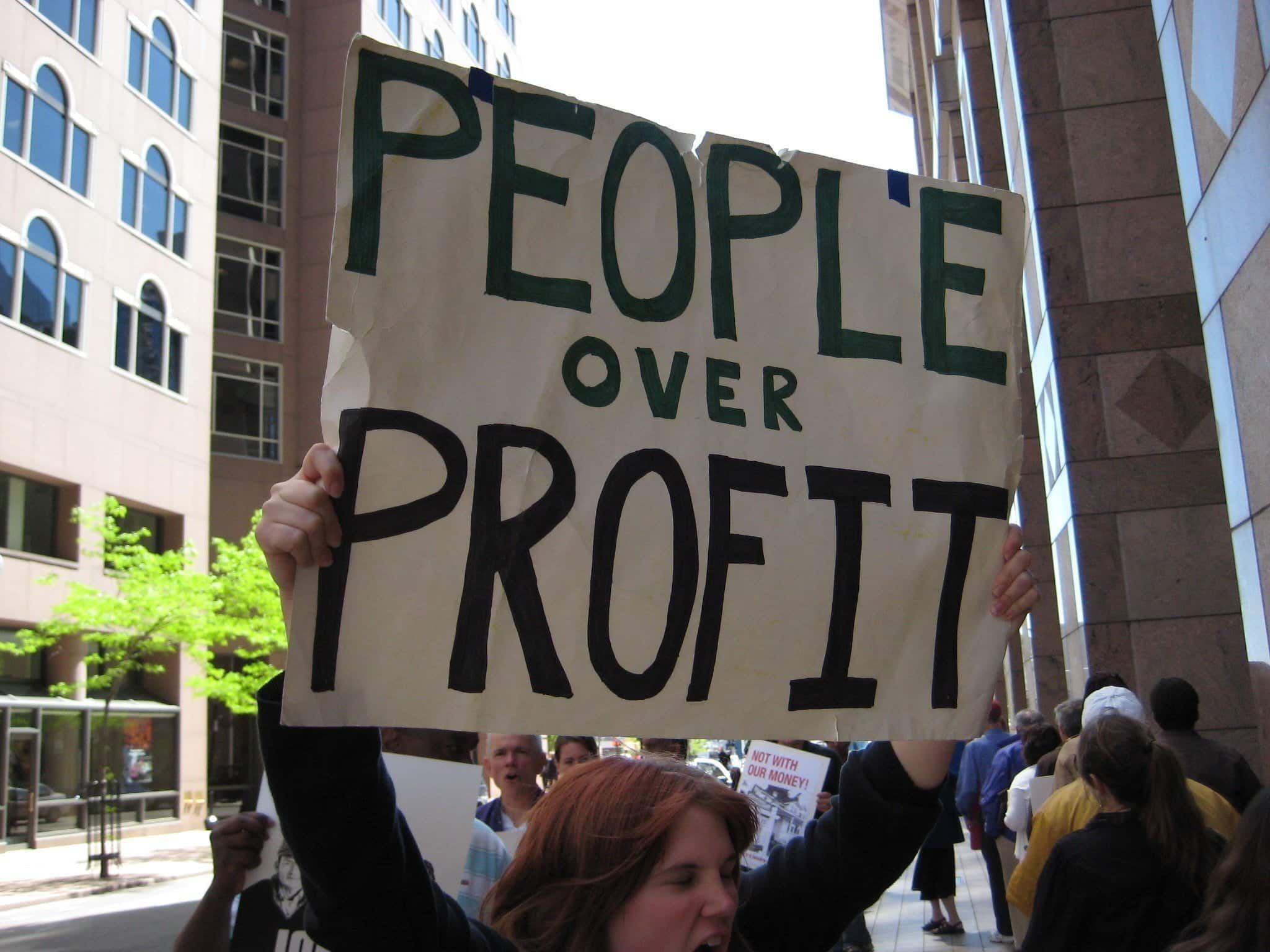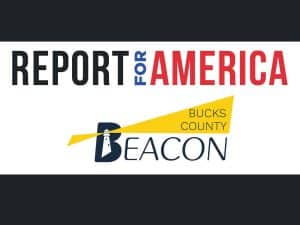As the need for home healthcare increases, so does the need for oversight. That was the message from the Service Employees International Union (SEIU) at a press conference in the state house last week. “Four of the five largest agencies are owned by private equity firms–a type of owner that is famous for putting profits first and care last,” cautioned President of SEIU Healthcare Pennsylvania Matt Yarnell.
Bayada Home Healthcare, a for-profit company that transitioned to non-profit status in 2019, is one of the firms collecting big bucks from taxpayers. The agency, whose CEO earns a salary of $750,493, recently made headlines for docking employee benefits to punish what the agency deems low output.
“Bayada Home Healthcare is huge. They’re an enormous company,” said Matt Ruben, a digital organizer with SEIU. In fact, Bayada, a Fortune 500 company, operates 329 locations in 23 states.
In Pennsylvania alone, Bayada scored about $372,178.58 of federal COVID funds – monies paid to home health agencies so they might offset expenses and better pay their employees during the pandemic. Ironic, seeing as they just scored a massive win after the Philadelphia-based 3rd U.S. Circuit Court of Appeals ruled against employees for companies like theirs – companies that, according to SEIU, don’t need anymore anti-worker policies.
Appellate Judges Michael Chagares, and Kent Jordan and Anthony Scirica (two appointed by George W. Bush and one by Ronald Reagan), ruled in March that paid time off (PTO) was not part of an employee’s salary. Stephanie Higgins and some of her colleagues had sued Bayada to win back benefits they had already earned. In the appellate court ruling, the judges stated that an employee could be punished for underwhelming work performance by losing their promised PTO.
READ: Could A 4-Day, 32-Hour Work Week Come To Pennsylvania? These 3 Democrats Are Working On It
Phone calls to the attorneys representing the plaintiffs, Higgins, et al, were not returned. But Doylestown employment lawyer Virginia Hardwick explained how a benefit – earned time off – could be docked under the circuit court’s ruling. “Federal laws, and Pennsylvania’s similar laws, state that most workers who are paid by the hour must get overtime. Some employees are exempt,” Hardwick told the Bucks County Beacon. “Bayada knows they aren’t allowed to take money away. With the court’s ruling, they are allowed to take benefits away.” Benefits like accrued paid time off.
When asked what Pennsylvania could do to protect workers, Hardwick suggested “if the PA Minimum Wage Act were amended to specifically include PTO within the definition of salary,” the workers might be better protected from Bayada or other agencies forcing these historically low paid employees to work without a paid break.
The U.S. Bureau of Labor Statistics sets the average wage of Pennsylvania home health worker at $13.40 per hour. Logic dictates that low wage employees can’t afford to take time off without pay. In the case of home health aides, this could be part of the strategy. United Homecare Workers of Pennsylvania statistics show 40 percent of this year’s workers will quit by next year – further compounding the problem. “The demand for home care in Pennsylvania is exploding, yet there is only one home care worker for every 8 people who want and need to have care inside their own homes.” If workers take a day off to go to a kid’s parent/teacher conference or go to the doctors themselves, the patient/clinician ratio gets even worse.
When asked for a comment on the Bayada ruling, United Home Care Workers of PA told the Bucks County Beacon:
“This is yet another example of how important it is for home care workers to unite and organize together, as well as the need for elected officials to take serious steps to make home care jobs good jobs with a living wage and benefits. It is shameful any time that a healthcare worker is forced to go to work sick, because they don’t have paid sick days and can’t afford to go without pay for the day.”
Nicholas Emeigh, Associate Executive Director of the National Alliance on Mental Illness of Bucks County, or NAMI, worries about the mental health of these home care workers. “Not having time off to do what you need to do. Not being able to pay your bills, this impacts your mental health.” Emeigh was confused about why more government oversight isn’t provided to protect these workers. “When we don’t value the workers who go into homes and provide care, we set ourselves up to face bigger issues.”
Since the early 1950s, the National Labor Relations Act has protected the rights of most workers. Most. Some workers – agricultural for example – are not guaranteed what others take for granted. A minimum wage, overtime, and now paid time off are among these items considered unnecessary for certain jobs – home healthcare is included in these exempt professions.
SEIU digital organizer Ruben explained some of the prejudice against home health workers, “There’s a lack of shared historic understanding [of what it takes to perform home care] and a long history of devaluing domestic care work. In the 1930’s care work was left out of labor laws, entirely.”
READ: Billionaires Are Bad For Democracy
Emeigh believes that without home healthcare, many of the 47,000 people NAMI served in Bucks County last year would eventually receive no care at all. “The way the county is laid out – it’s really long. If the folks who receive home care were forced to go out into the community, I wager that they wouldn’t do it. Not only would it be difficult because they are not well, but because there is so little public transportation.”
The loss of home care wouldn’t just impact human suffering, it would cost the taxpayers. “I can tell you for a certainty that they would stop participating in their treatment. I could see people needing higher level of care which is much more costly. It costs a fortune to put someone in the hospital,” said Emeigh.
Recently, a global pandemic forced nearly all healthcare customers into their homes, further exacerbating the problem. The federal government recognized this need to refocus healthcare funding and allocated funds to support this shift away from hospitals and clinics.
Remember Bayada’s $372,178.58?
Ruben and his colleagues at SEIU have begun sounding the alarm. “When Pennsylvania distributed $112 million of CARES Act funding to home care agencies, it required agencies to report how they spent it. 469 agencies failed to report how they spent the money. Those agencies received $22.3 million in state funds in 2021 – money which is still unaccounted for.” Bucks County Beacon reached out to Bayada to ask how they’d spent it. The company did not respond.
“It’s heartbreaking,” said Emeigh. “When the federal government sent NAMI Bucks County the money to compensate for additional health hazards related to the pandemic and for employee retention – that’s exactly where the money went. And we reported on it every time. We had to prove six months out that our employees were compensated and stayed. How do they get away with this? It has never occurred to us to give ourselves bonuses.”
But Emeigh later commented that he would never file a lawsuit in appellate court to take away someone’s accrued time off, either. “Treating people this way. It’s just not good for the continuity of business.”







